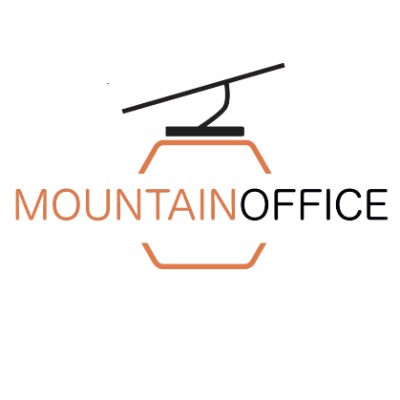Positive Summer Outlook At Austrian Tourism Day 2024

The Austrian Tourism Day (ÖTT) 2024 itook place at the Austria Center Vienna under the motto "Roadmap to the future". As part of the ÖTT, the Federal Ministry of Labor and Economic Affairs, the Austrian Federal Economic Chamber and the Austrian Tourist Board invited people to a press conference today. The 2024 Summer Potential Study and future trends in Austrian tourism were presented there.
Summer potential study: More and more people are planning holidays in Austria
Together with the Institute for Tourism and Spa Research, the Austrian Tourist Board conducts a study of summer potential every year. This is also the case in 2024. The study was carried out in 10 of the most important European source markets. A total of 11,000 people from Austria, Germany, Switzerland, the Netherlands, Belgium, Italy, Poland, the Czech Republic, Hungary and, for the first time, France gave an insight into their holiday plans.
The most important results:
- Up to 80% of the population in the markets surveyed say they want to travel in summer 2024.
- 21 million people have concrete plans for holidays in Austria – 1 million more than in 2023.
Summer themes in Austria: nature, water, cuisine, relaxation and mountains
Planned travel period: July and August, but also increasing interest in June and September
Looking back: 20 million arrivals were forecast for the summer of 2023. In fact, there were 21.1 million - this shows that it is possible to convince even undecided guests to vacation in Austria.
Looking ahead to the upcoming summer season, State Secretary for Tourism Susanne Kraus-Winkler sees "positive signs". The summer potential analysis has shown that more people are already planning a holiday in Austria than last year. The State Secretary for Tourism explains the reasons for this: "We are particularly pleased that our guests from Austria and abroad mostly state that their personal economic situation has improved since last year. Not only money, but also time and the desire to go on holiday are significantly more available than in the last survey."
"The results of the study are positive for the 2024 summer season: the holiday plans in the surveyed source markets paint an optimistic picture for Austria," explains Astrid Steharnig-Staudinger, Managing Director of Austria Tourism. "International interest in holidays in Austria is still unbroken: we particularly score points with our unique nature and cuisine, but the Austrian cosiness and the diversity of our country - our Austrian attitude to life - are also very popular," Steharnig-Staudinger continues.
As the review of the summer potential study shows, up to 70% of those planning to travel to Austria say that sustainability is a decisive factor in travel planning. "Digitalization and sustainability are becoming increasingly important in the tourism industry," confirms Robert Seeber, chairman of the Federal Division for Tourism and Leisure in the Austrian Chamber of Commerce. "For a successful future for Austrian tourism - as a top employer and source of added value - future-oriented cooperation within the industry and a strong orientation of companies in this direction are therefore essential," Seeber continues.
Holistic tourism policy as a recipe for success for Austria
“Tourism policy today follows a future-oriented approach that focuses primarily on balanced tourism for all stakeholders involved.
To achieve this, the needs of guests, tourism businesses and the local population must be coordinated as best as possible," said State Secretary for Tourism Susanne Kraus-Winkler. "That is why the issue of sustainability has been given a very special place in the federal government's tourism policy. This recipe for success is paying off."
In March 2023, the Federal Ministry of Labor and Economics finalized the reorientation of commercial tourism promotion. Since then, sustainable investments by tourism companies have been promoted in an even more targeted manner, for example through a "sustainability bonus". With the Green Tourism Loan, a new funding offer was also launched at the beginning of May 2024, which incentivizes investment loans for ecologically sustainable projects with an increased interest subsidy. In addition, an amendment to the regulation at the beginning of 2024 ensured that the population's attitude towards tourism ("tourism acceptance") will be measured every year in the future.
Austrian Tourism Day: Future map for domestic tourism
With around 1,000 registrations, this year's Austrian Tourism Day sends a strong signal for the idea of cooperation in tourism and at the same time places an emphasis on the future of the Austrian tourism industry.
The common thread of the event: the social megatrends, which were placed in a tourism context in collaboration with the Zukunftsinstitut and recorded in the future map for Austrian tourism. The future map summarizes in a compact way those trends that turned out to be most important for the industry in the course of a multi-stage selection process by tourism experts.
The Austrian Tourist Board is responding to the megatrends in tourism with innovative projects. The implementation of the "Bad Ischl AR" app and the further development of the project for other destinations, for example, serve to develop an individualized holiday experience under the megatrend of individualization. The app integrates digital information into physical reality and enables a sustainable and innovative tourism experience without interfering with the natural cityscape. In addition, the first Sustainable Travel in Austria Summit by ÖW and the Federal Ministry of Labor and Economics from June 24 to 25, 2024 will make a major contribution to the megatrend of neo-ecology, sustainability.
In addition, the ÖTT provides a platform for the launch of the new future initiative of the Austrian National Tourist Board, which is intended to ensure a continuous discussion of future trends: With Change Tourism Austria (CTA), the ÖW will work closely with representatives from the industry in the future to create innovative ideas for tourism, enable low-threshold knowledge transfer and implement future-oriented cooperations.













